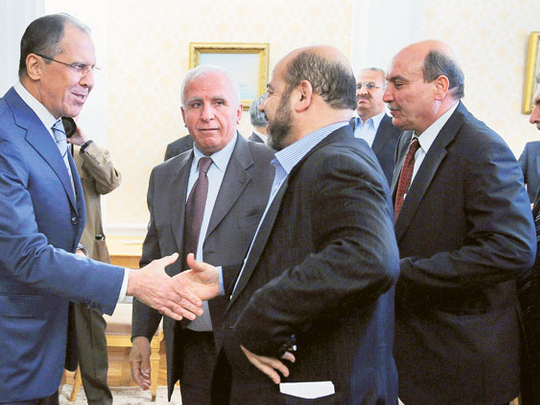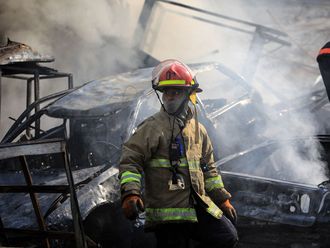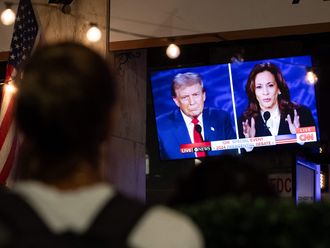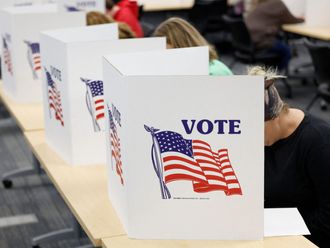
Occupied Jerusalem: US-Israel tension over Barack Obama's endorsement of Israel's pre-1967 borders is obscuring a flip side of the Middle East coin: recent speeches by the US President set out difficult challenges for the Palestinians as well.
Addressing the American Israel Public Affairs Committee on Sunday, Obama reiterated his request that the Palestinians drop their plans to appeal for recognition at the United Nations this fall, and — as he did in another Middle East speech on Thursday — raised tough questions about an emerging Palestinian unity government that is to include the Hamas resistance movement.
Most difficult for Palestinians is Obama's call to recognise Israel as the Jewish homeland, essentially requiring the Palestinians to accept that most refugees will be denied the "right of return" to what is now Israel.
Perhaps for this reason, the Palestinians have remained largely quiet about the substance of Obama's speeches, seemingly content to watch Israeli Premier Benjamin Netanyahu clash with the US administration over Israel's future borders.
"It's really premature to jump into any of these details," said Saeb Erekat, the chief Palestinian negotiator, when asked by The Associated Press about the demands Obama made of the Palestinians.
Explosive issues
The fate of Palestinian refugees is one of the most emotional and explosive issues in the Israeli-Palestinian conflict.
In his speech on Thursday, Obama did not explicitly mention the refugees. But by saying a final peace deal must recognise "Israel as a Jewish state and the homeland for the Jewish people" he appeared to back the Israeli position.
The issue is so central to Palestinian policy and society that no Palestinian leader can be seen as abandoning the rights of the refugees, particularly at a time when peace efforts are at a standstill and so many other difficult issues, such as borders and the final status of occupied Jerusalem, remain unresolved.
Nabeel Shaath, a senior Palestinian official, said recognition of Israel as a Jewish state would sell out not only the refugees, but potentially open the door to Israel expelling roughly 1.5 million Palestinians still living in 1948 areas. This idea has never been seriously raised in Israel. He said the Palestinian recognition of Israel's right to exist, without any reference to national character, should be sufficient. "We recognise Israel as a state," he said. "It's a recognition of a state to a state."
In his two recent speeches, Obama took aim at two other central planks of Palestinian policy: plans to ask the UN in September to recognise an independent Palestine, with or without a peace agreement and a unity deal struck between President Mahmoud Abbas' Fatah movement and the Hamas resistance.
In Thursday's speech, Obama warned that "symbolic actions to isolate Israel at the United Nations in September won't create an independent state". And referring to Hamas in Sunday's address to AIPAC, a powerful pro-Israel lobby, he said: "We will hold the Palestinians accountable for their actions and their rhetoric."
Erekat said that if Netanyahu were to accept the 1967 lines, he could raise any other matter in negotiations. "Before I hear the prime minister of Israel saying that he accepts this principle, I think it would be a waste of my time to discuss any other issue," he said.












